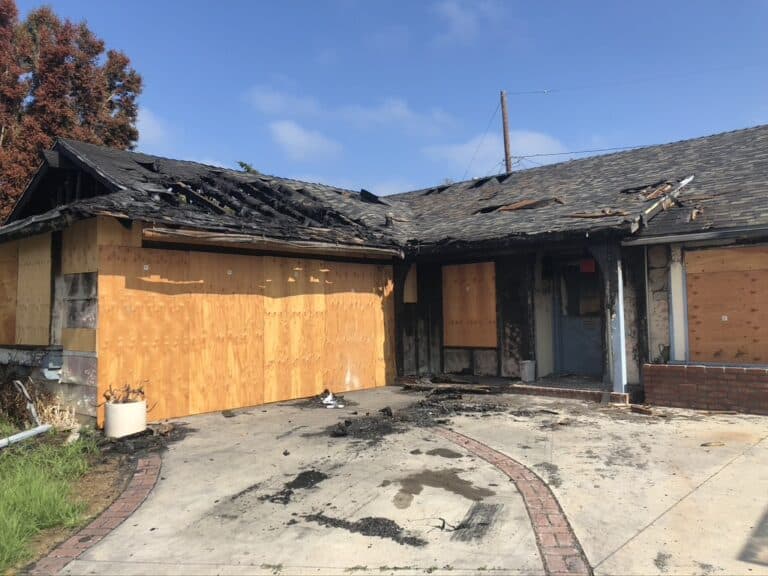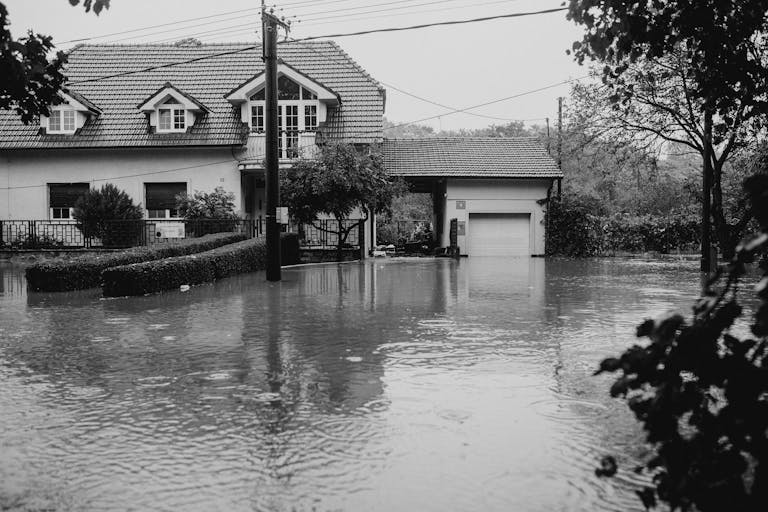Understanding the Essential Laws for Insurance Claims
Understanding the laws for insurance claims is essential for anyone who needs to file a claim. This article breaks down the important legal aspects, from time limits on payments to specific coverage rules and dispute resolutions. By knowing these laws, you can navigate your insurance claims more effectively and ensure you receive fair treatment.
Introduction to Insurance
The insurance industry is a cornerstone of financial security, offering protection against unexpected risks and losses for both individuals and businesses. Insurance companies provide a variety of products, such as health insurance, auto insurance, and property and casualty insurance, to help policyholders manage the financial impact of unforeseen events. In the United States, the insurance industry operates under a complex regulatory system shaped by both federal and state laws. State laws play a significant role in governing insurance transactions, while the National Association of Insurance Commissioners (NAIC) works to standardize regulations and promote best practices across the industry. Insurance commissioners in each state oversee compliance, ensuring that insurance companies act in the best interests of policyholders. Whether you’re seeking life insurance, auto insurance, or casualty insurance, understanding the basics of the insurance industry and its regulatory environment is essential for making informed decisions about your coverage.
Types of Insurance
Insurance companies offer a wide range of insurance products to meet the diverse needs of consumers. Health insurance is designed to help policyholders manage the costs of medical care, from routine checkups to major surgeries. Life insurance provides financial support to beneficiaries in the event of the policyholder’s death, offering peace of mind and security for
families. Auto insurance protects drivers from the financial consequences of automobile accidents, covering damages to vehicles and liability for bodily injury or property damage. Property and casualty insurance is essential for homeowners and businesses, helping them recover from losses due to fire, theft, or natural disasters. In addition to these core products, insurance companies also provide specialized coverage such as workers compensation insurance, which supports employees injured on the job, and terrorism risk insurance, which addresses losses from acts of terrorism. By understanding the different types of insurance available, consumers can choose the policies that best fit their needs and protect against a wide range of risks.
Key Takeaways
● Insurance companies have 30 to 60 days to make a claim payment after finalization, but state regulations and case complexity can influence this timeframe.
● Personal auto insurance may not cover business use; informing your insurer about such use is crucial to avoid denied claims.
● If a vehicle is deemed a total loss, understanding the implications for payouts, ongoing premium payments, and retention options is essential for navigating the claims process.
Time Limits for Insurance Claim Payments
A crucial aspect of insurance claims is understanding the time frame involved. Insurance companies generally have 30 to 60 days to make settlement payments after finalizing a settlement. This timeframe ensures that claimants receive their funds promptly, helping them manage financial responsibilities after an incident.
However, the statutory deadlines for insurers to investigate claims can vary by state insurance. Factors such as state regulation, the complexity of damages, and the determination of fault all play critical roles in the timeline of claim processing. For instance, more complex cases or those involving multiple parties might take longer to resolve due to the thorough investigations required.
Insurance claims can also be delayed by external factors. For example, an increase in claims due to bad weather or natural disasters can slow down the process as insurance companies
work through a higher volume of claims. Additionally, thorough investigations are sometimes necessary to ensure that all aspects of the claim are accurately assessed, which can also contribute to delays.
Reporting incidents to your insurance company within specified time limits is vital to avoid losing your right to file a claim. Prompt reporting initiates the claim process quickly, reducing the risk of unreasonable delays. To officially begin the insurer’s investigation and claim process, you must submit a formal complaint or claim form, as this is required for the insurer to validate your claim and determine any payouts. Knowing these time limits and influencing factors can help manage expectations and take proactive steps for a smooth claims process.
Coverage for Unidentified Object Damage
Comprehensive insurance often covers damage caused by unidentified objects, including theft, vandalism, and windshield damage. This type of insurance is especially useful for unexpected scenarios where the damage source is unclear, yet repair costs are inevitable.
Some insurance providers offer specific glass coverage without a deductible for windshield repairs. This means that if your windshield is damaged by an unidentified object, you might not have to pay anything out of pocket for the repair. In certain states, insurers are even required to provide policies that allow for zero deductibles on windshield replacements. This can be a significant relief, as windshields are crucial for both visibility and structural integrity of the vehicle.
Filing a claim for windshield damage often has less impact on your insurance premiums compared to other claims. Since windshield repairs are usually cheaper than replacements, insurers prefer repairs. When you file a claim, an insurance adjuster will assess the extent of the windshield damage and determine the appropriate coverage or repair based on your policy.
Knowing these details can help you make informed decisions about your coverage and understand the potential financial implications of filing a claim for unidentified object damage.
Use of Original Equipment Manufacturer (OEM) Parts in Repairs
The use of Original Equipment Manufacturer (OEM) parts in vehicle repairs is a significant concern for many car owners. Insurance companies must cover OEM parts if the damage affects safe driving, but only within the first 20,000 miles of the vehicle’s life. This ensures newer vehicles maintain their original quality and safety standards.
Once the vehicle exceeds 20,000 miles, insurance companies have the option to replace parts with used, reconditioned, or aftermarket options. While these alternatives can be cost-effective, they might not always meet the same quality standards as OEM parts. Understanding these
provisions can help you better navigate your repair options and advocate for the best possible outcome for your vehicle.
Handling Disputes Over Claim Amounts and Storage Charges
Disputes over claim amounts and storage charges can add another layer of complexity to the insurance claim process. Effective communication with your insurance company is crucial during such disputes. By staying in constant contact and responding promptly to offers, you can avoid being held responsible for storage fees.
The insurance company is responsible for covering storage charges during a claim dispute until a reasonable offer is made. This means that as long as the dispute is ongoing and no reasonable settlement has been reached, the insurer should bear the cost of storing your vehicle.
If disputes cannot be resolved through negotiation or the appraisal clause, parties may seek arbitration, and the resulting arbitration award can determine the final settlement amount.
Being aware of these financial responsibility can help you manage disputes in a fair manner and ensure that you aren’t unfairly burdened with additional costs through fair dealing.
Business Use of Personal Vehicles
Many people use their personal vehicles for business purposes without fully understanding the implications for their auto insurance coverage. Typically, personal auto insurance does not cover vehicles used primarily for business purposes. This means that if you’re using your car for work, you might need a separate commercial auto insurance policy to ensure you’re adequately covered.
For certain types of business use, especially those involving transporting goods or equipment, commercial property and casualty insurance may be necessary to ensure adequate coverage.
However, insurers may allow occasional business use of a personal vehicle without altering your coverage, provided it doesn’t exceed a specific mileage threshold. This can be useful for those who only use their vehicle for business sporadically.
Informing your insurance company about any business use is essential to avoid denied claims if an accident occurs during work-related driving. Transparency with your insurer helps avoid complications and ensures you have the appropriate coverage for all your driving needs.
Insurance Coverage for Rental or Borrowed Vehicles
Understanding insurance coverage for rental or borrowed vehicles can save you trouble. If a rental or borrowed vehicle is damaged while driven by you or a household member with the owner’s permission, your insurance coverage generally applies, providing peace of mind when borrowing a friend’s car or renting a vehicle.
However, it’s important to note that you are likely not covered for renting or borrowing trucks. If you need to rent or borrow a truck, it’s essential to check with your insurance company or agent to confirm coverage. This can help you avoid any surprises if an incident occurs while using the truck.
Supplemental liability insurance from rental companies can cover damages that your personal insurance might not fully address, such as loss of use costs. Additionally, personal accident insurance offered by rental companies may duplicate benefits already available through your health or life insurance policies. Understanding these nuances can help you make informed decisions about additional coverage when renting or borrowing a vehicle.
Rental Car Reimbursement After an Accident
Rental car reimbursement ensures you have a vehicle to use while your car is being repaired after an accident. If you are at fault, open a claim with your policy if it includes optional coverage Part 10 for rental car reimbursement. This coverage is essential for maintaining your daily routine without interruption.
If you are not at fault, obtain rental car reimbursement by opening a third-party claim with the at-fault party’s policy. This ensures the responsible party’s insurance covers your rental costs.
Understanding these processes helps you navigate claims smoothly and ensures you have a vehicle after an accident.
Primary Coverage for Accidents in Rental Cars
Primary coverage for accidents in rental cars depends on the rental agreement and your personal auto insurance policy. Personal auto insurance typically provides liability coverage extending to rental cars, ensuring compliance with state minimum requirements. If you’re involved in an accident while driving a rental car, your personal auto insurance generally covers the damages first.
However, personal auto insurance often comes with deductibles and limits that might leave gaps in coverage. Insurance provided by rental car companies usually acts as secondary coverage, which means that claims are first directed to your personal car insurance.
Similarly, credit card insurance for rental cars typically serves as secondary coverage, with your personal auto insurance handling initial claims. Knowing these details can help you make informed decisions about the coverage you need when renting a car.
Total Loss Settlement and Replacement Costs
When a vehicle is considered a total loss, it means that the repair costs exceed its current market value. In such cases, insurance companies typically pay the actual cash value of the
vehicle, which is based on market conditions at the time of the accident. This payout helps you cover the cost of replacing your totaled vehicle.
The actual cash value of a vehicle is calculated based on its depreciation minus the cost of repairs, meaning even relatively new vehicles will have decreased in value over time.
As part of the settlement process, insurers must certify the underlying claim and document all payments made for the insured loss.
Additionally, insurers are responsible for reasonable storage fees if the policy includes coverage for such charges, which a reasonable person would expect. Understanding these aspects can help you navigate the total loss compromise settlement process more effectively and ensure you receive fair compensation for your insured loss vehicle.
Continuing Premium Payments After a Total Loss
Even after your vehicle is declared a total loss:
● You must continue to pay your auto insurance premium until the license plates are returned.
● This ensures that you remain in compliance with state laws and avoid any legal issues. ● Cancelling your insurance policy after a total loss requires returning your license plates to the appropriate authority.
Insurance companies often provide online platforms where policyholders can cancel their insurance policies directly. If your license plates are lost, contact your local Department of Motor Vehicles for instructions on how to report the loss and obtain replacements before canceling your insurance. This process helps ensure a smooth transition and prevents any lapses in coverage.
Retaining a Vehicle Declared a Total Loss
If your vehicle is deemed a total loss, you can retain it by purchasing it at a reduced salvage value. This may be appealing if the vehicle holds value or sentimental significance. However, keeping a totaled vehicle can result in a lower payout from the insurance company.
Insurance policies may require you to remove certain coverages if you choose to keep a vehicle that’s been declared a total loss. Gather evidence on your vehicle’s market value before negotiating a total loss settlement. Providing written estimates from mechanics regarding the vehicle’s worth can strengthen your negotiation position.
If there’s a disagreement over the vehicle’s value, invoking your insurance policy’s appraisal clause can be beneficial. This clause allows for an independent appraisal to determine the vehicle’s value, helping to resolve disputes fairly. Knowing these options helps you make informed decisions about retaining a totaled vehicle and negotiating a fair settlement.
Collision Deductible Waivers
Collision deductible waivers can be a valuable addition to your auto insurance policy. Insurance companies may waive collision deductibles if specific conditions are met, such as the policyholder being less than 50% at fault for the accident. This can significantly reduce your out-of-pocket expenses in the event of a collision.
To have your deductible waived, you need a Waiver of Deductible endorsement and must meet conditions outlined in the policy. For instance, you might qualify for a waiver if your vehicle was legally parked when struck.
Without a Waiver of Deductible endorsement, insurance companies are not required to waive deductibles in any circumstance. Understanding these conditions can help you take advantage of potential savings and ensure you have the right coverage for your needs.
Diminished Value Claims Post-Accident
After an accident, even if your vehicle is fully repaired, it may suffer a decrease in market value due to its accident history. This is where diminished value claims come into play. Insurance companies are generally not required to pay for the diminished value of a vehicle after it has been fully repaired. This means that while your car may look and function as it did before the accident, its value on the market might still be lower.
To prove diminished value after repairs, the claimant must show a decrease in value and establish the amount of damages. This often involves obtaining appraisals and presenting evidence of the vehicle’s pre- and post-accident value.
The reduction in a vehicle’s market value due to its automobile accident history often remains, even after repairs restore its functionality. When an accident happened, being aware of your rights and the process for filing a diminished value claim can help you seek fair compensation for your vehicle’s loss in value.
Liability Insurance
Liability insurance is a critical form of protection for both individuals and businesses, shielding them from financial losses that may arise if they are held responsible for causing harm to others. This type of insurance is often mandated by law, especially for professionals and businesses that face higher risks of legal claims. Liability insurance covers a range of expenses, including damages awarded in civil cases, legal defense costs, and settlements resulting from claims of negligence or accidental injury. For example, if a customer slips and falls in a store, liability insurance can help cover the resulting claims and legal fees. By providing a financial safety net, liability insurance ensures that policyholders can meet their obligations without jeopardizing their personal or business assets. Understanding the role of liability insurance is essential for anyone seeking comprehensive protection against potential claims.
False Information on Insurance Applications
Honesty is the best policy when it comes to insurance applications. Misrepresentation on an application can lead to serious consequences, including the denial of coverage if discovered by the insurer. If lies are found on an application, future claims could be rejected due to inconsistencies in good faith. This means that any benefits you might have expected from your policy could be at risk.
Providing accurate information is essential to meet the insurance company’s requirements and avoid claim denial.
Insurance policies can be terminated if false information is revealed. Additionally, providing false information can result in increased premiums once the insurance company’s insurer recalculates based on accurate details related to insurance transactions, insurance rates, bad faith, insurance laws, and the insurance industry.
In serious cases, lying on an application may constitute insurance fraud, leading to criminal penalties. Understanding the importance of providing accurate information can help you avoid these severe repercussions and ensure that your coverage remains intact.
Non-Renewal of Policies Due to Claims
Receiving a non-renewal notice can be alarming, but it’s essential to understand your rights and the reasons behind such decisions. Key points to know include:
● Insurance companies must issue a non-renewal notice at least 45 days prior to the expiration of a policy if they decide not to renew it.
● This notice period gives you time to seek alternative coverage.
● It helps you avoid any lapses in protection.
Insurance companies cannot cancel your policy solely because you have filed a claim. Non-renewal decisions are typically based on various factors, including your overall risk profile and claims history. Knowing these regulations helps you respond appropriately to a non-renewal notice and ensure continuous coverage.
Responding to Cancellation Notices
If you receive a cancellation notice from your insurance provider, act quickly to protect your coverage. The first step is to pay the exact outstanding premium immediately, which can often resolve the issue and prevent cancellation.
If paying the outstanding premium doesn’t resolve the issue, send a written appeal to the Board of Appeal. This formal request can help contest the cancellation and seek reinstatement of your policy. If reinstatement is not possible, promptly seek new coverage to avoid legal issues associated with driving uninsured. Consulting an insurance agent can help you find suitable replacement coverage and guide you through the cancellation process.
Insurance companies often choose not to renew a policy if the insured has submitted multiple claims or is considered a high-risk customer. In some cases, an insurance provider may require specific actions from the policyholder, such as removing a pet, to continue coverage after certain claims. Understanding these steps can help you respond effectively to cancellation notices and maintain continuous insurance protection.
Consumer Protection in Insurance Claims
Insurance consumers are protected by a robust framework of state and federal laws designed to ensure fair treatment during the claims process. The Unfair Claims Settlement Practices Act prohibits insurance companies from engaging in unfair or deceptive practices, such as making unreasonable delays in processing claims, offering inadequate settlements, or misrepresenting policy terms. These laws require insurance companies to handle claims in a timely and transparent manner, providing clear explanations for any claim denial or settlement decision. Insurance consumers also have the right to appeal denied claims and request a review by state insurance regulators or, if necessary, pursue legal action in court. Additionally, the Federal Deposit Insurance Corporation (FDIC) offers further protections, including deposit insurance and oversight of financial institutions, to safeguard consumer interests. By understanding these protections, insurance consumers can advocate for their rights and ensure that their insurance policies deliver the coverage and support they expect.
Regulatory Framework for Insurance Claims
The regulation of insurance claims in the United States is shaped by a combination of state and federal laws, creating a comprehensive framework to protect policyholders and ensure fair practices. The National Association of Insurance Commissioners (NAIC) plays a central role in developing model regulations and promoting consistency across state lines, while state insurance regulators are responsible for enforcing state laws and overseeing the conduct of insurance companies within their jurisdictions. The federal government also contributes to insurance regulation, particularly in areas involving interstate commerce and federal programs like the Terrorism Risk Insurance Act. Insurance companies must adhere to strict legal requirements regarding claim handling, settlement practices, and consumer protection. Failure to comply with these regulations can result in penalties, fines, claim denial, and even legal action. By understanding the regulatory framework, both insurance companies and policyholders can better navigate the claims process and ensure that claims are handled in accordance with the law.
Summary
Navigating the world of insurance claims can be daunting, but understanding the essential laws and practices can make a significant difference. From time limits and coverage specifics to handling disputes and understanding your rights, being informed empowers you as an insurance consumer. Knowing when and how to report claims, what to expect in terms of coverage, and how to handle disputes can help you navigate the claims process more smoothly and effectively.
Remember, the key to managing insurance claims successfully lies in being proactive, communicating effectively with your insurance provider, and understanding your policy details. Armed with this knowledge, you can confidently navigate the complexities of insurance claims and ensure that you receive the fair treatment and compensation you deserve.
Frequently Asked Questions
What are the typical time frames for insurance claim payments?
Insurance companies typically process claim payments within 30 to 60 days after a settlement is finalized. It is important to stay informed during this period to ensure timely payment.
Does comprehensive insurance cover damage from unidentified objects?
Comprehensive insurance generally covers damage from unidentified objects, such as windshield damage, depending on the specific terms of your policy. It is advisable to review your coverage details for clarity.
Can I keep my vehicle if it’s declared a total loss?
You can retain your vehicle if it is declared a total loss by purchasing it at a reduced salvage value. However, be aware that you may face restrictions on its use and will likely have to go through a salvage title process.
What happens if I provide false information on my insurance application?
Providing false information on your insurance application may lead to denial of coverage and increased premiums, and can potentially result in criminal penalties. It is essential to provide accurate information to avoid severe consequences.
How can I respond to a cancellation notice from my insurance provider?
To effectively respond to a cancellation notice from your insurance provider, promptly pay any outstanding premium and consider submitting a written appeal if applicable. If reinstatement is not feasible, it is crucial to seek new coverage to prevent legal complications.







